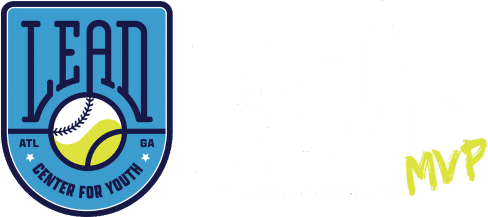God has blessed me with focus and I am grateful. With focus, I can better identify and communicate to others what we need at our organization, L.E.A.D., to sustain and grow it. So, when people ask us what they can do to help I am able to communicate our needs effectively.
I found my focus partly by understanding a leadership framework that John Maxwell shared at a Leadercast event that I attended several years ago. The premise is to move something such as an idea or statement from simplistic to simple. To do that we need to make a simplistic idea or statement complicated by challenging and questioning it. When we do, we expand it and then drill down to the value. That makes an idea simple and more effective. John says taking your idea through the grid Simplistic > Complex > Simple is not easy but its effective. We have applied and continue to apply John’s framework to L.E.A.D.
For instance, when my wife, Kelli, and I started L.E.A.D. (Launch, Expose, Advise, Direct) ten years ago we wanted to help Black boys play baseball. There was a void in the inner city of Atlanta and we aimed to fill it. Then we realized that Atlanta had a bigger problem. High truancy, low graduation rates and poverty among inner-city Black youth to name a few. We
also suffered high incarceration rates among young Black men. We had to make a shift from what we originally intended – helping Black boys play baseball in Atlanta – to a place of focus that we maintain and protect today – empower an at-risk generation to lead and transform their city of Atlanta. We went from simplistic to simple as we asked questions and moved through the weeds. Out of the complexity, we found our L.E.A.D. philosophy – “leadership is developed by leading” – and our methodology – Pathway To Empowerment™.
John Maxwell’s process also provided us with the framework necessary to focus on creating an environment that nurtures successful relationships among L.E.A.D. participants, and with those who partner with us to help us lead. We are now celebrating L.E.A.D.’s 10th Anniversary. Our organization’s foundation is firmly set. We remain convicted in our mission, and L.E.A.D. Ambassadors are succeeding. We remain focused. We need you.
We need you to lead with us and we are ready for you. We’ve taken L.E.A.D. through John Maxwell’s grid, evaluated and drilled down to make things simple but effective. Through this focus, we’ve identified four things that you can do to help our organization empower the Ambassadors to lead and transform their city of Atlanta.
1. PRAY
There is power in prayer. Please be in prayer for us daily throughout the year. Pray that L.E.A.D. seeks God daily and is obedient to His assignments. Pray that we be patient, discerning and forgiving of others. You can pray these prayers privately, or you can also send them to us via email. You can keep them anonymous or you can share your name. Prayers we receive by email are forwarded to a designated Ambassador who shares it with the other Ambassadors. We cannot emphasize enough the positive impact this show of support has on the Ambassadors and the organization as a whole. Click here to email us your prayer for us.
2. BE A PRESENT
We all have a calling to fulfill on our lives. I believe we are called, generally speaking, to be the hands and feet of God on earth. It really helps us as an organization when we are in the presence of people who understand their own spiritual gifts and earthly talents. If that’s you, please reach out to us to discuss how we can work together.
If you are unsure about your gifts and talents, and would like to discover them try what I did. I discovered mine by answering these four questions:
What do you laugh about?
What do you worry about?
What do you cry about?
What do you dream about?
Your answers to these questions may help you identify your God given gifts and talent and lead you to find your purpose in life. You may also discover that you are a good fit for L.E.A.D. .
3. BE PRESENT
One of the best ways to help L.E.A.D. is by simply showing up to our games and cheering us on. We all know the power of money and we can always use it to further our mission, but there is so much power in encouragement. It speaks volumes to our Ambassadors when people they may know only in passing, or even those they may not know, take the time to show up and watch them compete. At least that’s what I experienced growing up playing baseball. As a child, I dreamed of playing pro-baseball in front of fans that were cheering me while, in a sense, as their hero, I was empowering them. I even practiced signing my autograph for hours as an inner-city Atlanta elementary school student so I’d be ready when the day came.
Our young Ambassadors are creating a new normal for themselves by participating in L.E.A.D.’s program, and they are succeeding. They are dreaming new dreams. They are whittling away at staggering statistics that had
them, too often, mired in nightmares of being incarcerated. Those night-mares are turning into dreams of high school and college graduation, and sustainable careers and families. 100% of L.E.A.D. Ambassadors graduate from high school. 95% of our Ambassadors attend college and 90% on scholarship. 5% of L.E.A.D. Ambassadors enlist in the military.
Your presence at our games and other events is a powerful message to the Ambassadors that the community supports them, and cares about them. We see “pep in their step” after games that are more fully attended. Click here to attend an upcoming L.E.A.D. game or event and show your support for L.E.A.D. Ambassadors.
4. BE A PARTNER
L.E.A.D. is much more than a non-profit 501(c)3 organization. We are a Methodology and a Movement.
L.E.A.D. (Launch, Expose, Advise, Direct) is a place where mentors find it is safe, as do the mentees, to show themselves because they find that engaging with our Ambassadors is enlightening and empowering. I find this to be true each time I interact with them. I am able to be vulnerable and admit that I don’t have all of the answers they may need as they work on self-empowerment. I can go even deeper with them, and let them know that sometimes, during low times, even I can fall short of motivating myself.
Further, I always have lots of questions for the Ambassadors. Since we’ve created a culture that promotes honesty, I can ask them questions and they can authentically respond with how they feel. The manner in which these discussions take place allows me to serve them in a way that they need instead of in a way that I think they need, and those interactions reinforce trust.
L.E.A.D. promotes honest discussion and nurtures trust among its mentors and mentees. We welcome mentors. To find out more about becoming a partner in mentorship click here. We also welcome financial donations to sustain our Methodology and Movement. To make a recurring financial donation click here.
We welcome you to come lead with us to fulfill our mission to empower an at-risk generation to lead and transform their city of Atlanta. You can be a prayer warrior for us, share your gifts and talents, show up at games and events, and make recurring donations. Use the following links to email us with any questions or comments you may have about signing on:
Click here to email us your prayer for us.
Click here to make a recurring financial donation.
Click here to attend an upcoming L.E.A.D. event.
Click here if you would like to share your gifts and talents with L.E.A.D.
We appreciate you, and look forward to leading with you!


